Modi Govt Recovered Rs 10 Lakh Cr Bad Loans: FM
By Rediff Money Desk, New Delhi May 31, 2024 12:49
Finance Minister Nirmala Sitharaman highlights Modi government's success in turning around the banking sector, recovering over Rs 10 lakh crore in bad loans and implementing reforms for greater transparency and stability.
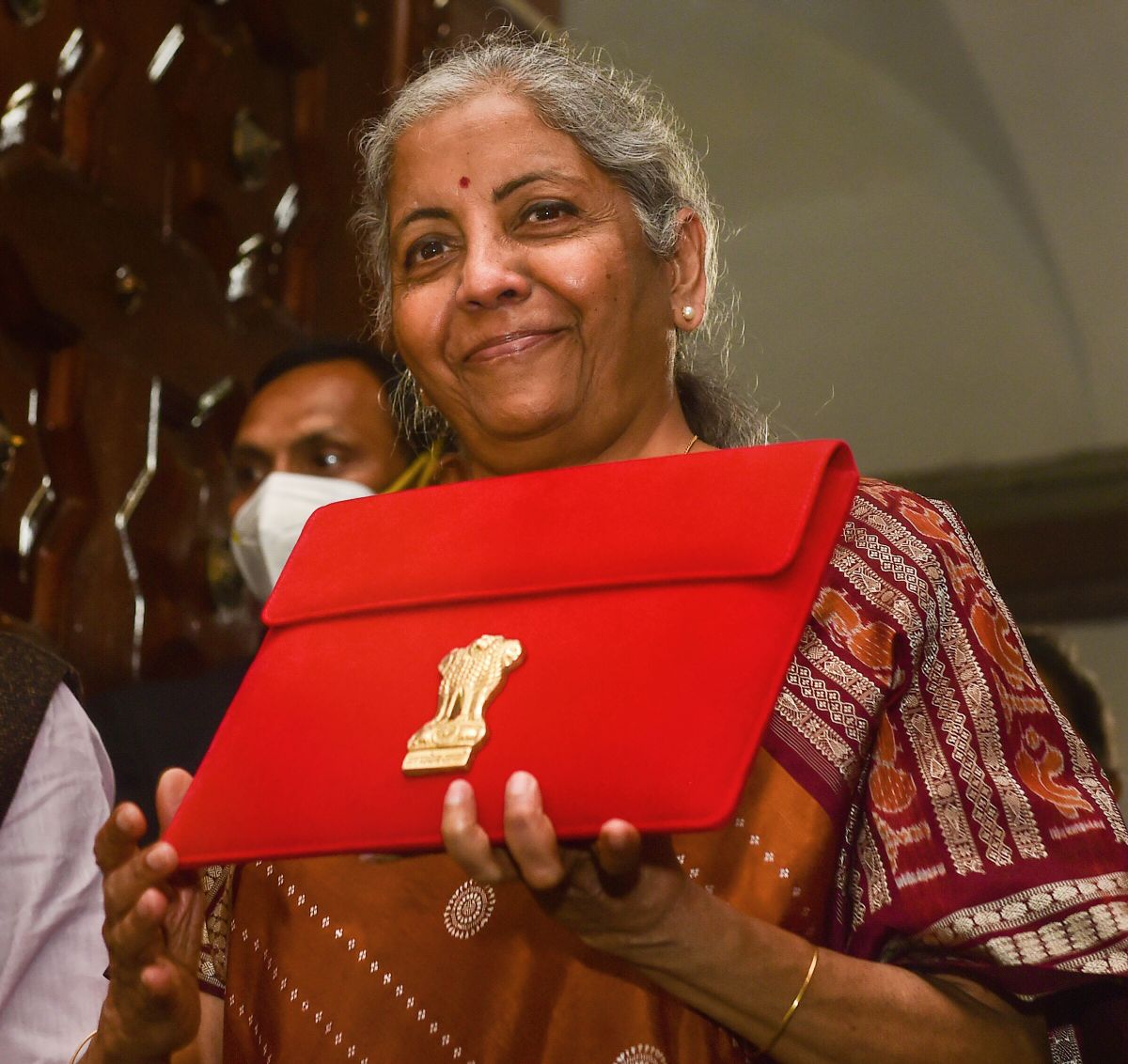
Photograph: Kamal Kishore/PTIPhoto
New Delhi, May 31 (PTI) Finance minister Nirmala Sitharaman on Friday said the Modi government has turned around the banking sector through various reforms and improved governance which has led to banks recovering more than Rs 10 lakh crore from bad loans between 2014 and 2023.
She said the Enforcement Directorate has investigated around 1,105 bank fraud cases, which resulted in the attachment of Rs 64,920 crore worth of proceeds of crime. As of December 2023, assets amounting to Rs 15,183 crore have been restituted to the Public Sector Banks (PSBs).
"Recently, India's banking sector achieved a significant milestone by recording its highest-ever net profit, crossing Rs 3 lakh crore. The banking sector turned around due to PM Shri @narendramodi's strong and decisive leadership. Our government atoned for the UPA's sins in the banking sector through comprehensive and long-term reforms," Sitharaman said in a post on X.
She said there has been no leniency in recovering bad loans, especially from large defaulters, under the Modi government and the process is ongoing.
This is in stark contrast to the situation before 2014 when @INCIndia led UPA government turned the banking sector into a cesspool of bad loans, vested interests, corruption and mismanagement.
"It's a pity that opposition leaders are still unable to distinguish between write-offs and waivers. After the 'write-offs' as per RBI's guidelines, banks actively pursue the recovery of bad loans. And, there has been no 'waiver ' of loans for any industrialist. Between 2014 and 2023, banks recovered more than Rs 10 lakh crore from bad loans."
Slamming the Congress-led UPA's tenure for mismanaging the sector she said the 'seeds' of the NPA crisis were sown during the @INCIndia-led UPA era through 'Phone Banking' when loans were given to undeserving businesses under pressure from UPA leaders and party functionaries.
"Under the UPA, obtaining loans from banks often depended on powerful connections rather than a solid business proposition. Banks were forced to neglect proper due diligence and risk assessment before sanctioning these loans," she said.
Sitharaman said the Modi government implemented a comprehensive 4R's strategy of Recognising NPAs transparently, Resolution and Recovery, Recapitalising PSBs, and Reforms after coming to power in 2014. "Our reforms addressed credit discipline, recognition and resolution of stress, responsible lending and improved governance. We replaced political interference in banks with professional integrity and independence," she said.
The minister said the Modi government will continue to take decisive measures to strengthen and stabilise our banking system, ensuring banks support India's growth path to Viksit Bharat by 2047.
"The UPA Alliance, dominated by dynastic parties, used banks for their own 'Parivar Kalyan' (family welfare). In contrast, our government has leveraged banks for 'Jan Kalyan' (public welfare)," she said
Efforts to expand banking in India faltered for decades due to Congress's limited actions beyond bank nationalisation, which benefitted mainly the educated and elite. Before 2014, banking access was largely restricted to cities, she said.
"We remain committed to further driving financial inclusion and empowering the underprivileged," Sitharaman said.
She said the Enforcement Directorate has investigated around 1,105 bank fraud cases, which resulted in the attachment of Rs 64,920 crore worth of proceeds of crime. As of December 2023, assets amounting to Rs 15,183 crore have been restituted to the Public Sector Banks (PSBs).
"Recently, India's banking sector achieved a significant milestone by recording its highest-ever net profit, crossing Rs 3 lakh crore. The banking sector turned around due to PM Shri @narendramodi's strong and decisive leadership. Our government atoned for the UPA's sins in the banking sector through comprehensive and long-term reforms," Sitharaman said in a post on X.
She said there has been no leniency in recovering bad loans, especially from large defaulters, under the Modi government and the process is ongoing.
This is in stark contrast to the situation before 2014 when @INCIndia led UPA government turned the banking sector into a cesspool of bad loans, vested interests, corruption and mismanagement.
"It's a pity that opposition leaders are still unable to distinguish between write-offs and waivers. After the 'write-offs' as per RBI's guidelines, banks actively pursue the recovery of bad loans. And, there has been no 'waiver ' of loans for any industrialist. Between 2014 and 2023, banks recovered more than Rs 10 lakh crore from bad loans."
Slamming the Congress-led UPA's tenure for mismanaging the sector she said the 'seeds' of the NPA crisis were sown during the @INCIndia-led UPA era through 'Phone Banking' when loans were given to undeserving businesses under pressure from UPA leaders and party functionaries.
"Under the UPA, obtaining loans from banks often depended on powerful connections rather than a solid business proposition. Banks were forced to neglect proper due diligence and risk assessment before sanctioning these loans," she said.
Sitharaman said the Modi government implemented a comprehensive 4R's strategy of Recognising NPAs transparently, Resolution and Recovery, Recapitalising PSBs, and Reforms after coming to power in 2014. "Our reforms addressed credit discipline, recognition and resolution of stress, responsible lending and improved governance. We replaced political interference in banks with professional integrity and independence," she said.
The minister said the Modi government will continue to take decisive measures to strengthen and stabilise our banking system, ensuring banks support India's growth path to Viksit Bharat by 2047.
"The UPA Alliance, dominated by dynastic parties, used banks for their own 'Parivar Kalyan' (family welfare). In contrast, our government has leveraged banks for 'Jan Kalyan' (public welfare)," she said
Efforts to expand banking in India faltered for decades due to Congress's limited actions beyond bank nationalisation, which benefitted mainly the educated and elite. Before 2014, banking access was largely restricted to cities, she said.
"We remain committed to further driving financial inclusion and empowering the underprivileged," Sitharaman said.
Source: PTI
Read More On:
DISCLAIMER - This article is from a syndicated feed. The original source is responsible for accuracy, views & content ownership. Views expressed may not reflect those of rediff.com India Limited.
You May Like To Read
TODAY'S MOST TRADED COMPANIES
- Company Name
- Price
- Volume
- GTL Infrastructure
- 2.93 ( -4.87)
- 226206286
- IFL Enterprises
- 1.30 (+ 4.84)
- 81461564
- Vodafone Idea L
- 16.79 (+ 0.66)
- 67447398
- NCL Research
- 0.95 ( -4.04)
- 31996628
- Franklin Industries
- 3.73 (+ 3.32)
- 21511209
MORE NEWS

Navi Mumbai Airport ILS Signal Testing Begins
The Airports Authority of India (AAI) has begun ILS signal testing at the...

Air India VRS for Non-Flying Staff Ahead of...
Air India has announced a voluntary retirement scheme (VRS) and voluntary separation...
Fisher Groups Oppose WTO Fisheries Subsidy Talks
Small-scale fisher groups from India, Indonesia, and Bangladesh demand WTO keep...



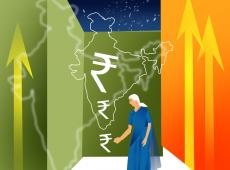
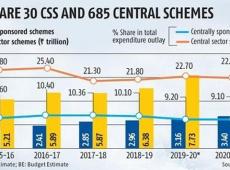
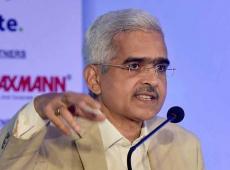

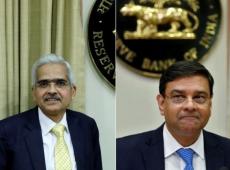
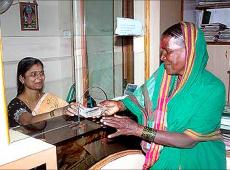
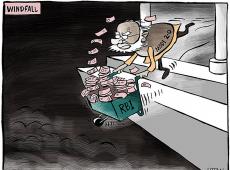
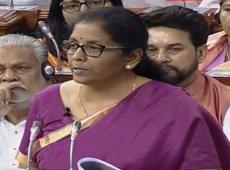
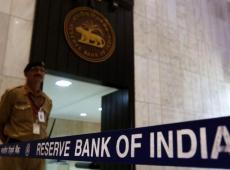
 © 2024 Rediff.com India Limited. All rights reserved.
© 2024 Rediff.com India Limited. All rights reserved.